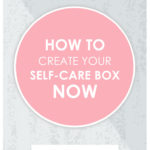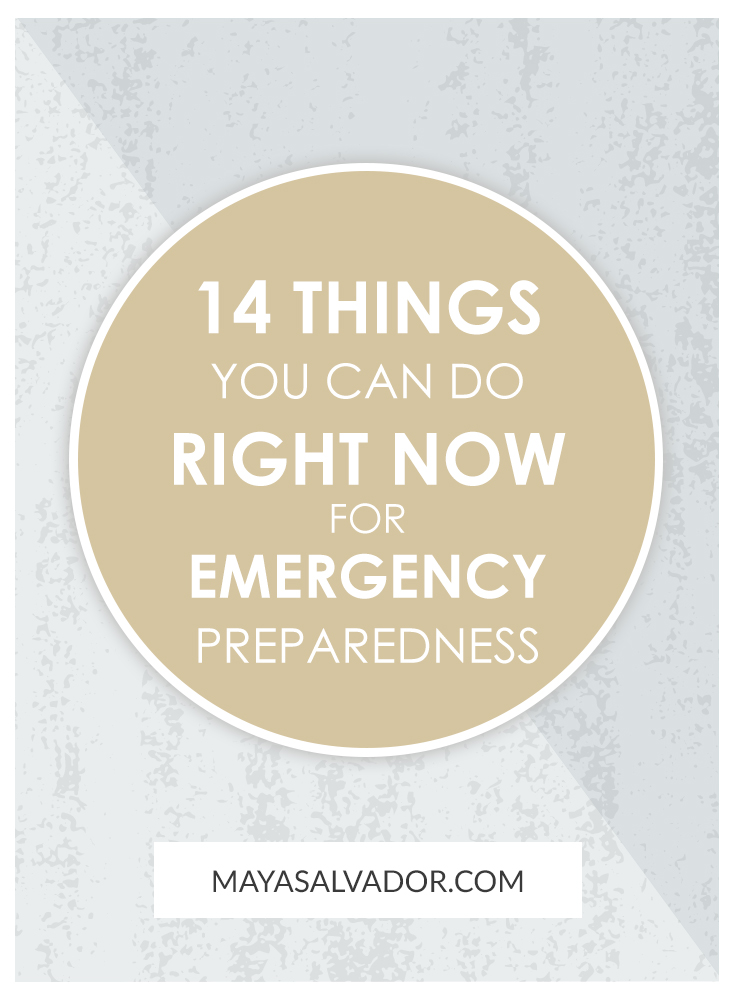
Low self-esteem can cause serious problems in almost every area of your life. Low self-esteem can make you more prone to falling sick, and makes it more difficult to get better.
It can make it difficult to make friends, and can cause problems in relationships.
It can even cause problems at work, making it difficult to get promotions and raises.
Most of us have struggled with self-esteem issues at times in our lives. For some people, it’s an ongoing battle.
I’ve had moments where I felt on top of the world. Others, well, not so much.
Sometimes problems can start to pile up one on top of another until one day you wonder what happened.
At times you can get so wrapped up in survival or a crisis, or even the day-to-day grind, that you stop taking care of you. Your self-esteem takes a hit and you don’t recognize yourself anymore.
Fortunately, if you suffer from low self-esteem, there are some things you can do about it.
1 – Find Your Triggers
Most likely there are particular things that make you feel low in self-esteem.
Think back to the times when you felt particularly low. Did it happen as the result of a crisis at home? Because of an issue at work? Perhaps it was the result of dealing with unexpected social situations.
Once you identify the things that trigger you, you can learn different coping strategies. Or perhaps avoid the triggers altogether.
If you prefer using pen and paper, a great resource to use is The Self-Esteem Workbook.
2 – Retrain Your Instincts
The human brain, though complex, is simple in some ways, and can be trained.
Think back to the most recent time you felt low self-esteem. Then immediately think of at least five times that you did everything right. And had reason to feel good about yourself. Make this exercise a regular routine.
Why five? Noted psychologist, John Gottman, studied the negative to positive ratio and found it to be 5:1. Meaning it takes five positive statements to erase a negative one.
In time, when you feel low self-esteem you will immediately get a mood boost.
The bestseller, Feeling Good: The New Mood Therapy can help you overcome negative feelings.
3 – Use Mirror Affirmations
For similar reasons, you should spend a few moments in front of the mirror each morning. Pick out the things about yourself that make you feel good.
You might feel a bit weird about this in the beginning. But think about it. Why is it less awkward to pick apart our flaws in a mirror?
The next time you look in a mirror, tell yourself something kind. When you meet someone and you want to compliment them, you look for the good so you can offer authentic praise. You wouldn’t start ripping them to shreds. Make it a practice to do this with yourself.
Look for the good and say an affirmation. This reminder will help you keep your self-confidence high.
Need a jumpstart on affirmations? Try, Affirmators! 50 Affirmation Cards to Help You Help Yourself—without the Self-Helpy-Ness! Affirmators is a non-cheesy, fun set of cards.
4 – Put it in Plain View
Keep mementos around you, at work and home that remind you of who you are. These should be things that, when you see them, make you feel good about yourself. Or remind you of happy, strong times in your life.
You need a trophy room
OK, maybe you don’t need an entire room. But make it a priority to make some space in your surroundings for your well-being.
If you have children, you are familiar with putting their work up for everyone to see. Why not show this pride in ourselves as adults?
I like to display cards and artwork from my children that they have made for me.
You can also include photos and cards from family and friends.
I also put up work achievements, testimonials, and my best work.
Have visual reminders of your accomplishments, of how much you are loved and appreciated.
Create a vision board
I have two vision boards that I display. One is for career goals and the other for personal goals. You could combine them into one board.
I like to keep my career vision board in my home office. It gets me back on track if I’m having a challenging day.
Making a vision board is a fun, quick and easy project. I purchased a foam board as my base. I printed off and cut out images that represent my goals and glued them onto the board.
Having a visual representation of who I am and where I want to be, reaffirms my goals.
You can read my thoughts on creating vision boards in a future post.
5 – Keep A Thoughts Diary
Keep a diary of your thoughts. Update it a few times each day, if you can. Review it every once in a while. Look for signs of negative thinking that you might be sabotaging yourself with.
Look for examples of black and white, all or nothing thinking. Be alert for signs that you jump to negative conclusions, or only see the bad in situations.
Journaling is a good practice to get into. You can add in daily gratitude as well. Sometimes we can have a distorted lens and focus on the bad things that have happened. Looking for things we can feel grateful for can help make a bad day seem more manageable.
If you don’t feel that you can keep up with a journal, then make a night time ritual. Every night before you go to sleep, think of something you feel grateful for. Remember something good or amusing that happened that day. Finishing the day on a positive note is a healthy habit to get into.
6 – Forgive Yourself
For this moment, review the list of mistakes you have made in your life. This is the hard part.
It’s scary to face our mistakes. But hiding or avoiding our feelings only makes it worse. So get it all out in the open with yourself.
Tell yourself that to err is human, and that you forgive yourself. Even if you don’t really feel it, just repeating it often enough will help.
Everyone makes mistakes. We are often more gentle and forgiving of others than we are with ourselves. So pretend your friend has come to you with the mistake you have made. What advice would you give them? How would you help them move on?
Shame and guilt can cloud our judgement. Looking at our mistakes from the outside in can provide a better perspective.
Forgiveness takes time. Remind yourself that you can only move forward. You can’t change the past but you can change the present and future. Give yourself a do-over and create the life you want.
Once you accept yourself, flaws and all, you can begin to create a loving relationship with yourself. And when we love ourselves we have better relationships with others too.
7 – Avoid “Should” and “Must”
Try to avoid using these words if at all possible, even in your own head. They lead to absolutist thinking and inappropriate feelings of failure.
In fact, do your best to erase any negative tapes playing in your head. Our mind can be so powerful that we can become what we tell it.
Change habits and behaviours that are negative.
When you catch yourself thinking something bad about yourself, interrupt the thought. Replace it with something positive immediately (e.g. what are five great things about me?)
If you find yourself ruminating or having intrusive thoughts, catch it right away. Start another activity to interrupt the pattern and shut down that train of thought.
Even if you don’t feel it right now, be persistent. As they say, “fake it ‘til you make it.” You will get there in time.
8 – Always Add a Hopeful Statement
When you feel negative emotions, you will usually experience an immediate bad reaction. It may be accompanied by terrible feelings and hopeless thoughts.
Train yourself into a healthier habit by always adding a hopeful statement. Do it as soon as you can remember to, such as “… but I can handle it!”
If you aren’t convinced, think back to a time when you resolved a problem or conquered a challenge. You will see that you are more capable than you realized. Doing this will also help you with the next strategy.
9 – Trust Yourself
As with the last exercise, think back to a previous time when you faced a problem. Did the obstacle seem huge and overwhelming? Did you still find a way out?
Remind yourself of these accomplishments. You are more resourceful and capable than you may give yourself credit for.
It’s not always easy, but keep reminding yourself that you can trust yourself to do your best.
The more obstacles you have overcome, the more confident you will become.
10 – Ditch the labels
Everybody uses labels to describe people and situations. Whether intentional or not, labelling is damaging to yourself and others.
When you are feeling low, you may use negative labels to think about the situations that you are in. Be aware of this, and ditch the labels and replace with positive feedback.
For example, let’s say you didn’t play with your kids because you were tired after a long day of work. Would you label yourself a bad mother? You shouldn’t, because you aren’t.
Limiting beliefs can undermine your confidence. So switch out the tape in your head for a better one.
Another book to add to your wellness library is Self-Esteem: A Proven Program of Cognitive Techniques for Assessing, Improving, and Maintaining Your Self-Esteem.
11 – Practice assertiveness
When you have low self-esteem you might agree to things you don’t want to do.
Some things in life you can’t avoid. But start to de-clutter by removing the unnecessary things you don’t want to do.
Learn to say no. Without explanation. People who do not accept your answer, push you, guilt you or demand explanations are not respecting your boundaries.
Women in particular feel pressured to overwhelm themselves with others’ demands. When you start to say no, it may upset some people. In time those people will learn to respect your boundaries or move on. Either way, you’re on the path to self-respect.
If you find yourself in codependent relationships or tend to micro-manage, I highly recommend reading, Codependent No More: How to Stop Controlling Others and Start Caring for Yourself.
12 – Take care of yourself
Low self-esteem can link with stress and anxiety levels. Do yourself a favour and make time for meditation and relaxation. It’s hard to find time but even spending 10 minutes a day will provide benefits.
Tuning out the world, even for a brief time, can make a difference. Nighttime is the perfect time to practice meditation. It helps clear the inner chatter of worrying and ruminating on things to do.
There’s a mind – body connection when it comes to mental health. Remember to include mind and body fitness in your regular routines.
Get enough sleep. When you are well rested it is easier to cope with problems and resolve any issues.
Eat a healthy diet and stay hydrated. When it comes to physical fitness, feeling good about your appearance isn’t the only benefit. Feeling good builds confidence.
If you’re into it, I find running while listening to music is a great way to clear my head and reduce stress.
This doesn’t mean you have to become a gym rat. Taking time to even do low-moderate exercise is beneficial as well. Go for walks or do some light yoga.
If you can’t make the time for a class, there is a great, inexpensive app called Yoga Studio. I use this app every day. I love it because it has video classes with routines geared toward beginners as well as experts.
Do fun things! If you’re always working and don’t make time for play, you can lose motivation.
I’m a firm believer in making self-care a daily ritual. Read my post, How to Create Your Self-Care Box Now for more detailed information.

Yoga Studio app
Your new life starts today
Don’t overwhelm yourself by trying to do all these at once. Try out one or two of these practices in the beginning. Add more to your routine as you feel comfortable.
It may not always be easy to follow these practices. They may seem awkward, or pointless at first. But, with enough practice, you can train your brain to think in new, healthier ways.
What are your healthy tips to building self-esteem? Please share in the comments!







